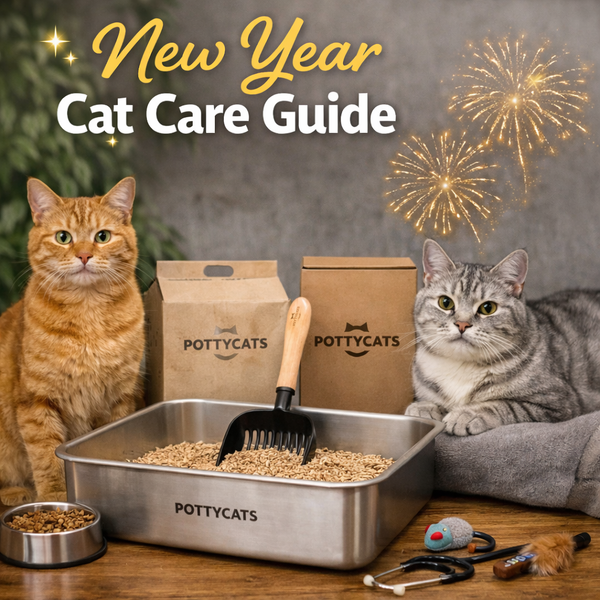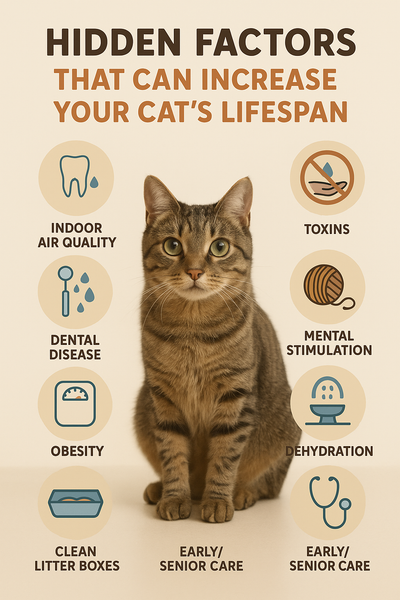
Cats are masters of disguise, but their stoic demeanor often hides a sensitive and particular nature. While they can be incredibly loving and affectionate, there are certain things that can quickly turn your purring companion into a disgruntled feline. Understanding these aversions is key to building a stronger bond and ensuring a happy, stress-free life for your pet.
Here are 10 things that are guaranteed to get on your cat's bad side:
1. A Dirty Litter Box
This is a big one. Cats are meticulous creatures, and a dirty litter box is an affront to their very nature. Imagine having to use a filthy public restroom every day—it's no different for them. A full, smelly, or unscooped litter box can lead to your cat finding other, less desirable places to do their business. To keep your cat happy and your home clean, scoop the litter box at least once a day and do a full litter change at least once a week.
2. Strong Smells
A cat's sense of smell is far more powerful than a human's. Things like citrus, vinegar, heavily scented candles, air fresheners, and even strong perfumes can be overwhelming and unpleasant for them. These scents are often used as cat deterrents for a reason. Opt for unscented cleaning products and fragrances in your home to keep your cat's sensitive nose happy.
3. Loud Noises
Sudden, loud noises are a cat's worst nightmare. The boom of fireworks, the roar of a vacuum cleaner, a dropped pot in the kitchen, or a sudden clap of thunder can send them scurrying for cover. Cats thrive on a sense of security, and loud noises disrupt that sense of safety. Try to introduce new sounds gradually and provide a safe, quiet space for your cat to retreat to when things get noisy.
4. Ignoring Their Body Language
Cats are excellent communicators, but you have to pay attention. Ignoring a swishing tail (a sign of agitation), pinned-back ears (fear or aggression), or a low growl is a surefire way to upset your cat. Learn their signals and respect their boundaries. If they're telling you they need space, give it to them.
5. Being Picked Up Incorrectly
While some cats love being held, many do not, especially if it's done incorrectly. Hanging a cat from its armpits, holding them too tightly, or surprising them with a sudden lift can make them feel vulnerable and trapped. Always support their body and all four paws, and never force a cuddle.
6. Changes in Routine
Cats are creatures of habit. They love a predictable schedule for feeding, playtime, and sleep. A sudden change in your schedule, a new piece of furniture, or even a different brand of food can cause stress and anxiety. When a change is necessary, introduce it gradually to help your cat adjust.
7. Other Cats
This may seem counterintuitive, but cats are often solitary animals. While some get along famously with other felines, many are not fond of sharing their space, resources, or human's affection. If you're introducing a new cat into the home, a slow and careful introduction process is crucial to avoid conflict.
8. Being Teased
Dangling a toy just out of reach, poking at them, or playing rough can be frustrating and even frightening for a cat. While they love to play, they don't appreciate being made fun of. This can lead to trust issues and a cat that is hesitant to engage in playtime with you.
9. A Lack of Mental and Physical Stimulation
A bored cat is a destructive cat. Cats have a natural predatory instinct that needs to be satisfied. Without opportunities to hunt, stalk, and pounce (even on a toy), they can become bored, depressed, and even anxious. Provide a variety of toys, scratching posts, and engaging playtime sessions to keep them entertained.
10. The Vet
This one is pretty universal. Most cats do not enjoy trips to the vet, and for good reason—they're often poked, prodded, and put in a strange environment with unfamiliar smells and sounds. While it's a necessary part of their life, you can make it easier by getting them used to their carrier and making the experience as calm as possible.
Understanding these aversions is the first step to building a happy and healthy relationship with your feline friend. By respecting their boundaries and providing a predictable, stimulating, and clean environment, you'll ensure your cat feels safe, loved, and at home.



